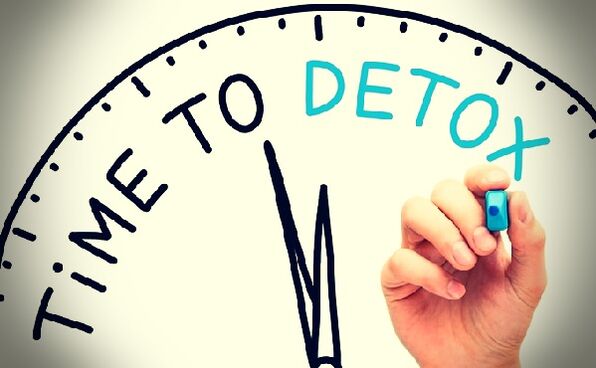Alcohol addiction, supported by myths and underestimation, ensnares many people every year. The problem of drunkenness is more relevant than ever: according to statistics, only 20 percent of people consume alcohol no more than 2-3 times a month. Others drink even more often and do not even realize that they are already addicted to the green snake or are halfway to addiction. When health begins to deteriorate or relatives demand reassurance, the drinker asks himself: how to stop drinking forever, is it possible without coding?
Recognize the problem
Drinkers rarely admit that they are very close friends with alcohol. For example, I only drink beer on weekends, but my neighbor drinks vodka every day. When should you consider whether your behavior crosses the line between "occasional drinking" and alcoholism?
- If you drink alcohol several times a month.
- If you drink to the point of inebriation, and not with one glass.
- If alcohol is an essential tool for rest and relaxation for you.
Even the presence of the two factors mentioned above indicates the risk of alcohol addiction, or that it has already begun.
After taking the mini-test, a person must admit that they still have problems with alcohol. At this stage, the drinker makes many excuses for his behavior. But all of them can be refuted by logical reflection.
- I don't drink, I just relax. Alcohol brings imaginary relaxation. Shortly after drinking alcohol, the body has to work hard to save itself from ethyl alcohol poisoning. If the dose is too high, a hangover occurs with unpleasant and painful symptoms. What kind of vacation are we talking about?
- I drink because I have problems. Every person has two kinds of problems in life: either they need to be solved or they are not worth worrying about. Just because of the glass addiction, more problems than before appear: loss of work, family, health.
- I drink because I have a hard life. Few people find it a fun walk to be on this earth. Say you have a hard life, starving children of Africa, terminally ill, orphans in the orphanage.

As you can see, all the arguments in defense of drunkenness can be refuted, but the drinker has to do it himself, in the end he agrees that he has been deceiving himself and others all along.
Steps to Sobriety
A tiny percentage of alcoholics may decide to say goodbye to alcohol for good. A promise made to yourself or loved ones overshadows the strong desire to drink after a week, which those who stop drinking are unable to resist. Relapses occur because the alcoholic does not understand that sobriety is a goal that must be progressed gradually, with small but sure steps.
- It is impossible to immediately give up alcohol after a long period of drinking. This is fraught with additional stress on the heart and nervous system. Before you stop drinking alcohol, you need to cleanse your body of its breakdown products. This can be done both in a medical hospital, under a drip, and at home. Medicines sold on the Internet are suitable for the latter option. They not only remove toxins, but also reduce the desire to drink.
- If your head is clear and your hands are not shaking, you need to understand that the only way to get rid of alcohol addiction is to give up alcoholic drinks in any amount forever. This requires motivation: the desire not to ruin your health, the fear of losing your job or family.
- How many people who wanted to stop drinking got stuck under the weight of withdrawal. You need to know the enemy personally, so when you embark on the path of sobriety, you need to remember that the body will need a dose of ethanol, reacting:
- anxiety for no reason;
- self-pity;
- a feeling of emptiness in life;
- weakness and unwillingness to do anything.

Do not abuse folk remedies for cleansing the body: medicinal herbs also have contraindications and can cause aggravation of diseases.
The period of withdrawal from alcohol can last from six to 18 months.

Activities that promote sobriety
How to stop drinking forever when life seems gray and monotonous? This is where the main task of stopping drinking lies - a radical change in lifestyle, getting rid of bad habits and acquiring useful things that contribute to sobriety.
- At first, you should avoid companies where everyone drinks. Don't tell your friends or former drinking buddies, "I want to quit drinking. " They'll probably try to talk you out of such a "crazy" venture.
- You have to do sports. Have you sat with a beer while rooting for the soccer team? Now it is better to drive the ball alone. And if you no longer have the health to do active sports, a little jogging never hurts.
- Find a hobby. After giving up alcohol, life seems boring, so you need to find a way to fix it. Now that you don't have to buy alcohol, you can spend the money on hobbies, whether it's collecting, wood carving or fishing. A drinking woman can relax in yoga or massage. The point is to meet like-minded people who support a healthy lifestyle.
- You need to get rid of bad habits. The body, which has been suffering from the effects of alcohol for years, also takes on other bad habits: smoking, fast food, gathering at night in front of the computer. Rejecting at least half of them gives you energy and strength to move on.
After many years of friendship with alcohol, sobriety does not come immediately, you will need a lot of patience on the way there.































